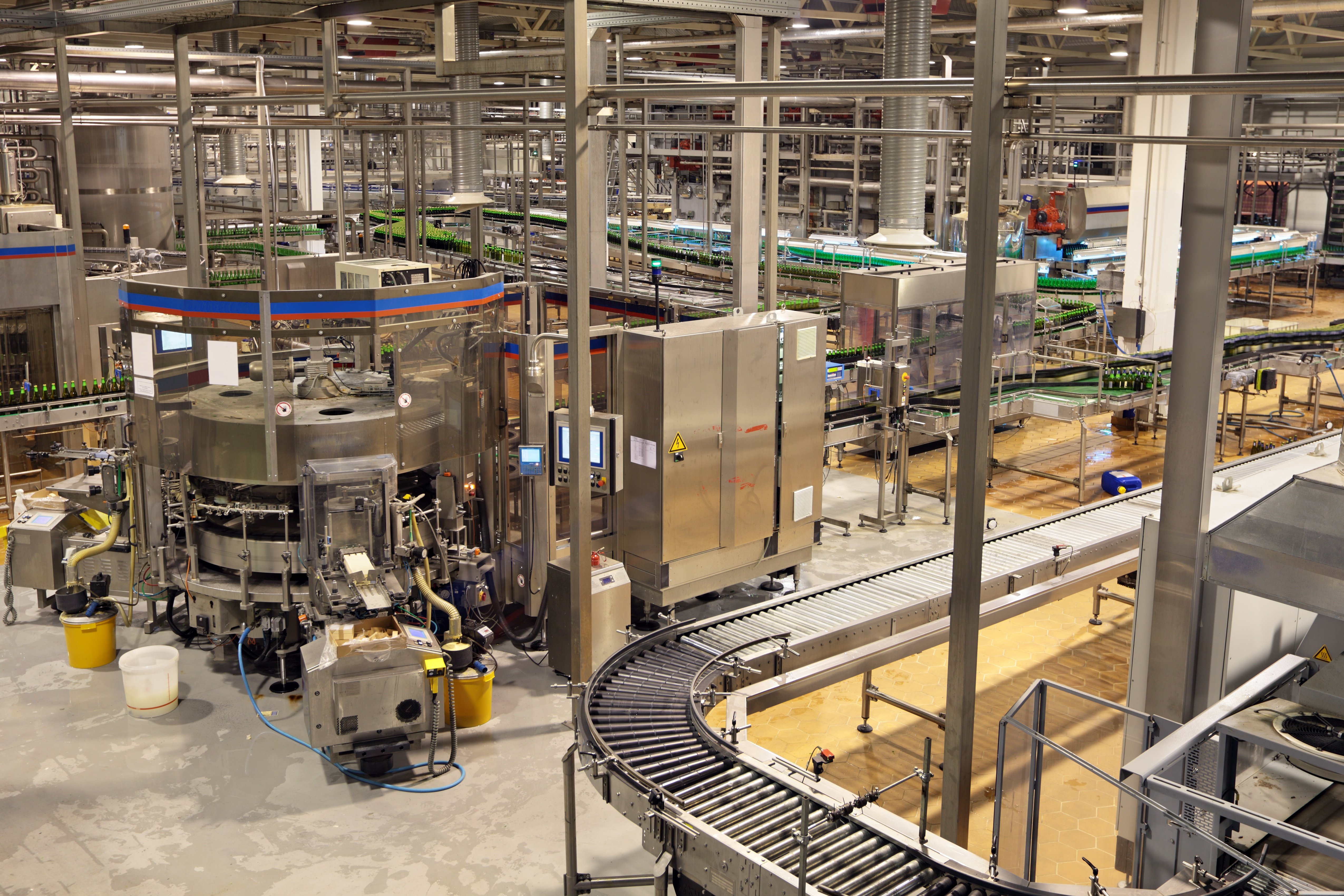Is equipment-sharing the elephant in the room that traditional dealers and rental firms don’t want to talk about? That’s the view of Frank Manfredi, industry consultant and president of Manfredi & Associates, a consulting firm and publisher of Machinery Outlook.
“People just don’t understand what it could do them,” says Manfredi. He likens the impact of the equipment-sharing model to that of equipment rental which was once a small sector of the industry but now accounts for more than half of the machine inventory. “People were in denial about that, too,” he says.
“There’s excess capacity in the system,” says Manfredi. “Eventually, no one is going to care who owns the equipment, all they want is the hole dug in the ground.”
Read More
Topics: Distribution
For a measure of how e-commerce and cloud computing are obliterating old business relationships and creating new, unexpected, and deeper partnerships, look no farther than distributors that are embedding themselves much more deeply in their key accounts’ day-to-day operations.
In times past, the underlying rule of business was that good fences made good neighbors. Customers and suppliers would interact, visit back and forth, and gradually get to know each other’s business needs, wants, and abilities. They would build mutual respect, might eventually become friends, might even get families together for an evening or a special occasion.
But there were still more walls than windows. Business was business, and companies would never have expected direct visibility into each other’s operations.
Read More
Topics: Distribution
Innovative business models are viewed as a way to protect businesses from disruption. Unlike product innovations, multi-dimensional business models are more difficult for competitors to replicate.
According to Soren Kaplan, best-selling author of Leapfrogging and The Invisible Advantage, and co-founder of UpBOARD , one of the first steps for business owners when pursing a new business model should be an assessment of the current industry. “If new competitors are entering the market, if competition is increasingly based on price, if differentiation is harder, you’re in a mature market,” says Kaplan. “This means you’re likely to see business model innovation happen.”
With digital disruption happening in virtually every industry, your choices are to drive it yourself or become the next Blockbuster or Borders.
Read More
Topics: Distribution

There’s an important question brewing for distributors as big, central supply houses like Amazon continue disrupting the manufacturing and wholesale marketplaces: Is Amazon the biggest and, possibly, the last challenge your business will face, or the best opportunity that will ever come your way?
At first glance, the answer is one or the other, with not very much middle ground.
The Amazon story has been building for years now, and most distributors understand the risk. They’re a big, massively tech-enabled company. For practical purposes, they have unlimited resources. They had a hand in creating the consumer-oriented e-commerce platforms that now set the standard for business-to-business relationships.
And they’re serious about moving in on distributors’ established business relationships and making them their own.
The famous author Douglas Adams had the first piece of universally good advice for anyone facing such a monumental threat: DON’T PANIC. But unless you’re a hitchhiker with the whole universe at your disposal and a consuming need to remember the number ‘42’, that only works if you have a plan in place to respond.
Read More
Topics: Distribution
According to a recent blog post by our partner, Infor, manufacturers are expressing optimism for growth in 2018.
A report published by the Leading Edge Alliance paints a rosy picture of the global outlook for manufacturing. Manufacturers’ optimism for the world economy in 2018 is now 59.4% — almost a 15-point increase over the 2017 outlook. Manufacturers are also optimistic about their national economies (69.3%) and their regional economies (69.3%)
Read More
Topics: Manufacturing, Fashion & Retail, Food & Beverage, Distribution, Infor M3, Chemical, Equipment

Should you choose functionality or flexibility?
Yes.
Modification is a controversial word for many professionals in manufacturing’s IT industry. The term
“off the shelf” also has mixed connotations, as it is often associated with old generic business solutions that offered rudimentary functionality under the guise of “plug and play” simplicity.
As the needs of manufacturers have changed over the years, the software available to address them has evolved as well, leading to a lot of discussion lately around the age-old question of “to modify or not to modify.” While the issue remains complex, the pendulum seems to be swinging clearly away from heavily customized systems and toward those that can provide a large percentage of the functionality required, without significant modifications. A number of factors are driving this trend—aging systems (the acronym ERP, first used by Gartner, celebrates its 25th birthday this year), the increasing difficulty of finding workers who can support them, and changing market conditions are all on the list.
Read More
Topics: Manufacturing, Fashion & Retail, Food & Beverage, Distribution, Infor M3, Chemical, Equipment
Manufacturers face increasing pressures to adopt digital strategies in order to keep pace with innovation and customer expectations. Unfortunately, according to IDC Manufacturing Insights, manufacturers are also reluctant to be first movers. Only 15% have a digital strategy in place now. 37% Want to be early adapters, but not first movers— because there may be risks. And, 35% say they prefer to wait until they see proven results before they deploy digital technologies.
Read More
Topics: Manufacturing, Fashion & Retail, Food & Beverage, Distribution, Infor M3, Chemical, Equipment
Digital transformation is impacting all manufacturing and distribution businesses. No matter how complex your supply chain is, you need to be able to respond faster to change, reduce excess inventory, and cut costs. Most importantly, you’ve got to give customers what you’ve promised at the time you promised it. To keep up with the pace of change, you need an agile and modern ERP solution that is flexible enough to handle both the opportunities and challenges you face today—and tomorrow.
Read how Infor M3 delivers rich industry-specific functionality to cover your unique business needs.
Read More
Topics: Manufacturing, Fashion & Retail, Food & Beverage, Distribution, Infor M3, Chemical, Equipment

5 Ways Wholesale Distributors Can Succeed With The Millennial Generation.
Currently, the number of millennial employees (those born between 1982 and 2004) exceeds that of baby boomers; by 2030, millennials will represent 75% of the workforce, according to the U.S. Bureau of Labor Statistics.
As the most technologically adept generation in history, the impact millennials will have on the business world is expected to be significant:
- As employees, millennials value collaboration rapid advancement, and innovation.
- As customers, millennials value choice, flexibility, and the ability to do business using the technology they prefer. Many millennials research products online, share reviews on social media, order online, and interact with customer service through online chat or social media.
- As suppliers, millennials prefer partners who can share data streams easily with their own technology, so they can analyze trends and monitor real-time activity.
Download this paper to learn the five key technology drivers.
Read More
Topics: Distribution
No matter how complex your supply chain is, you need to be able to respond faster to change, reduce excess inventory, and cut costs. Most importantly, you’ve got to give customers what you’ve promised at the time you promised it. To keep up with the pace of change, you need an agile and modern ERP solution that is flexible enough to handle both the opportunities and challenges you face today—and tomorrow.
Read More
Topics: Manufacturing, Distribution, Infor M3







